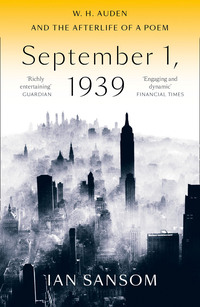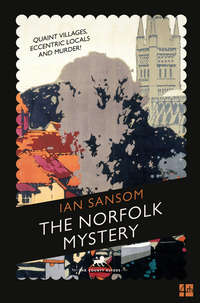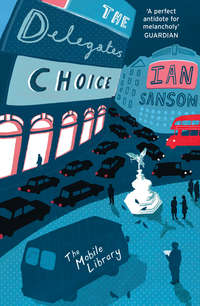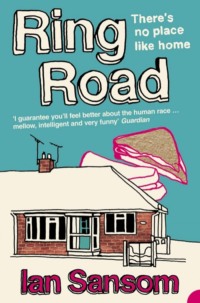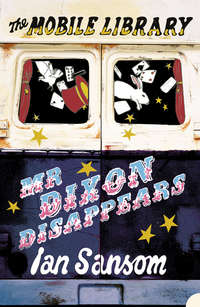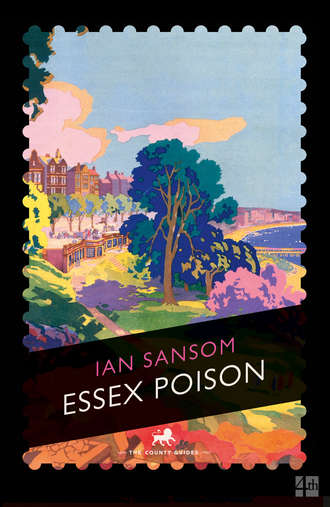
Полная версия
Essex Poison
Once I built a railroad, I made it run
Made it race against time
Once I built a railroad, now it’s done.
Brother, can you spare a dime?
Once I built a tower up to the sun
Brick and rivet and lime
Once I built a tower, now it’s done
Brother, can you spare a dime?
‘Ah, Sefton, good morning!’ He raised his cup of tea towards me in greeting.
I was about to reply when there came a horrible sharp dinning in my right ear: I wondered for a second if I had perhaps burst an eardrum after my fall down the stairs. I hadn’t: it was just Miriam, with a trumpet to her lips, attempting some sort of reveille.
‘How did you find me?’ I managed to ask them, through my confusion.
‘Really, Sefton. It doesn’t exactly take a Miss Marple to track your movements,’ said Miriam. She laid down the trumpet and was about to pick up a trombone.
‘I’ve got a bit of a headache, actually,’ I said.
‘I’m not surprised. You look dreadful. What on earth’s happened to you? Have you been in another fight?’ I saw that her eyes had alighted upon the xylophone in the corner.
‘Please,’ I said. ‘I really do have a—’
‘Well, if you will insist on drinking and carousing, Sefton, what on earth do you expect?’
‘A most singular method of enjoying oneself, if you don’t mind my saying so,’ added Morley. ‘Not at all good for one. The old ivory dome.’ He tapped a finger to his head. ‘One has to take care of it, you know. I was at Madison Square Garden when Max Baer beat Primo Carnera – goodness me, that was a fight. Couldn’t you take up chess instead? Do you know Max Euwe?’
‘I can’t say I do,’ I said.
‘World champion? Defeated Alekhine?’
‘I must have missed that,’ I said.
‘Good dose of Eno’s Fruit Salts will see you right,’ said Morley.
‘Mmm,’ I agreed.
‘Or this,’ said Miriam, and she thrust her left wrist under my nose. ‘Have a sniff. It’s Schiaparelli’s Shocking. My new scent. Given to me by an admirer. Do you like it?’
I took a quick sniff. It smelled like all other perfume.
‘Well?’ said Miriam.
‘Very nice,’ I said, finally beginning to gain full consciousness.
Miriam and Morley certainly had a way of waking a man up in the morning.
Morley was opposite, at the piano, looking as spruce and as chipper as ever: bow tie, light tweeds, dazzling brogues. Miriam was doing her best to lounge on Ron Pease’s office chair – and her best was more than good enough. She somehow looked at this unearthly hour as she always looked: as though she had just finished a photo-shoot, perhaps for Vogue magazine, or some publicity stills for MGM. Her eye make-up was fashionably smudged, her white dress and matching jacket exquisite. She was also sporting some sort of barbaric necklace that looked as though it might recently have been wrenched from the neck of an aboriginal tribesperson, and then set with diamonds, the sort of necklace that one sometimes sees in the window of Asprey – the sort of necklace that might cost at least one hundred pounds or more.
I put the thought immediately from my mind.
‘Who let you in?’ I asked.
‘Well, it’s a surprisingly busy little building, isn’t it?’ said Morley. ‘A charming young lady from the first floor escorted us up. I think she said her name was Desiree?’
‘I think you’ll find her name is probably not Desiree,’ said Miriam, looking knowingly at me.
‘Sorry?’ said Morley.
‘“That one may smile, and smile, and be a villain – At least I am sure it may be so in Denmark.”’
‘Hamlet?’ said Morley. ‘I can’t see the relevance, my dear.’
‘Denmark. Street,’ said Miriam.
‘Anyway,’ I said.
‘Yes, quite,’ said Morley. ‘Anyway. No time to lose, eh, Sefton? Another book to write.’
‘Sorry, did we finish the last one?’
‘Yes, we did,’ said Miriam.
‘Westmorland,’ said Morley. ‘Almost finished.’
‘In your absence,’ said Miriam.
‘Few tweaks, few i’s to dot and some t’s to cross, but we should have it done by the end of next week, Miriam, shouldn’t we?’
‘I would have thought so, Father, yes.’
‘So, ready for the printers and into the shops by the end of October, I would have thought. Excelsior!’
‘Right,’ I said.
Morley was publishing books almost faster than I could read them. I’d been in his employ since early September, working on The County Guides, and we’d already covered Norfolk, Devon and Westmorland. I’d travelled more widely in England within a month than I had in the previous twenty-six years of my pre-Morley existence.
‘You’ll be thrilled to hear, Sefton, that our next county is Essex,’ said Miriam.
‘Essex?’
‘That’s right,’ said Morley. ‘When you think of Essex, Sefton, what do you think of?’
‘When I think of Essex.’ When I think of Essex? It was not a place I had ever given a first – let alone a second – thought to. ‘When I think of Essex I think of …’ I thought of Willy Mann asking if I’d like to work for Mr Klein on some project.
‘Oysters!’ said Morley. ‘Correct! And cockles, sprats, whitebait, flounder, dab, plaice, sole, eels, halibut, turbot, brill—’
‘Yes, Father, we get the picture.’
‘Lobster, haddock, whiting, herring, pike, perch, chub—’
‘Yes, Father.’
‘Gudgeon, roach, tench—’
‘Father!’
‘Winkles. But above all the Ostreaedulis! The English native!’
‘Sorry? The English native …?’
‘Oyster, Sefton! It is our privilege, sir, to have been invited as guests of honour to the annual Oyster Feast in Colchester!’
‘Very good,’ I said.
‘Colchester, ancient capital of England. Camulodunum – the fortress of Camulos! A place arguably more important historically than London itself. Home to the mighty Coel and his daughter Helena, not to mention the mighty Boadicea.’
‘And tell him, Father.’
‘Tell him what, Miriam?’
‘Father’s terribly excited, Sefton, because one of the fellow guests at the Oyster Feast is going to be—’
‘Oh yes!’ cried Morley. ‘The aviatrix!’
‘The who?’ I asked.
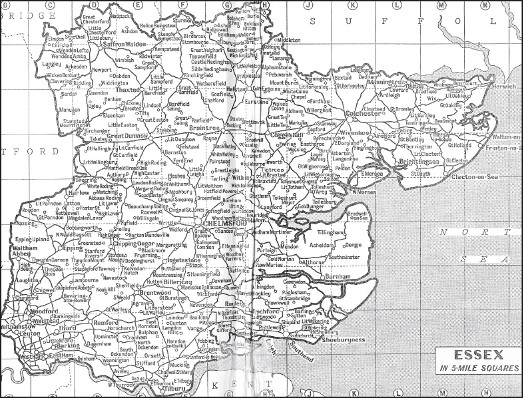
When I think of Essex
‘The aviatrix!’ repeated Morley.
‘By which he means the famous female aviator Amy Johnson.’
‘Really?’
‘Apparently, according to Father.’
‘Well, I very much look forward to—’
There came the sound of bells ringing outside. St-Giles-in-the-Fields. This was one of the disadvantages of staying at 14 Denmark Street: the close proximity to Christian bell-ringing, which could play havoc with a hangover, though frankly Morley and Miriam more than matched the din. At the last stroke of the bell, Morley checked all his watches: the luminous wristwatch, the non-luminous wristwatch and his pocket-watch. He doubtless had an egg-timer concealed somewhere about his person, but there was no need to consult it on this occasion.
‘Not bad,’ he said. ‘Not bad. I’d better push on, though, chaps. I’ll see you there this evening?’
‘Father is travelling up by train,’ said Miriam. ‘We’re going to take the car. Now, I do expect to see you there on time, Father.’
‘Yes, of course.’
‘There’s an exhibition at the Royal Albert Hall,’ explained Miriam. ‘Father’s very keen to go.’
‘Ah,’ I said.
‘By the Ford Motor Company,’ said Morley.
‘At the Royal Albert Hall?’ I said.
‘That’s right!’
‘You’re not allowed to buy any more motorcars, though, Father. Understand?’
‘Yes, of course,’ said Morley.
‘We have quite enough already.’
‘Yes, yes.’
‘If you were going to buy another we’d have to sell one.’
Morley was an absolute car fiend. He was an autoholic. To my knowledge he never parted with a car, any more than he ever parted with a book, or a typewriter.
‘You’re just looking, remember?’
‘Yes, yes,’ said Morley. ‘I thought it was worth a visit,’ he explained to me. ‘Because we’re going to Essex. I tried to persuade Miriam that we should visit the Ford Works at Dagenham but she wasn’t keen.’
‘I thought Father going to an exhibition would be just as good. Don’t you agree, Sefton?’
‘Yes,’ I agreed. I probably had as little desire as Miriam to visit a motor vehicle manufacturer – probably less.
‘They’re bringing all the men and machines from Dagenham anyway,’ said Morley. ‘So it’ll be as if we were actually witnessing them constructing an actual vehicle in an actual factory!’
‘In the Albert Hall?’ I said. ‘Really?’
‘Yes, yes. Quite remarkable, isn’t it? Way of the future, Sefton. Arts, crafts and manufacturing joining together to usher in the Age of the Automated Arts. I wonder if we might organise some sort of society, actually … The AAA. Sort of an RSA for the twentieth century. What do you think, Miriam?’
‘I think we need to concentrate on the task in hand, Father.’
‘Yes, yes, of course. Very good. So, I have taken the liberty of drawing up a little list here of places in Essex for you two to visit on the way to Colchester, for the purposes of research for the book.’
He handed me a complicated diagram that looked as though it were a sort of geological map.
‘One needs to think of Essex, Sefton, as like a series of layers.’
‘Ah,’ I said.
‘Like a cake?’ said Miriam.
‘Precisely like a cake, Miriam,’ said Morley. ‘A sort of topographical cremeschnitte, in five parts: the coast, the marshes, the farms, the villages, and the towns dominated by London.’
‘OK,’ I said.
‘Our account of Essex will begin here, on the very bottom layer of the cake, as it were. In Becontree.’
‘Becontree?’ asked Miriam. ‘Must we?’
‘In years to come, Miriam, mark my words, Becontree will be regarded as one of the great wonders of the world. New housing for tens of thousands of workers? Quite extraordinary. Like something created by the pharaohs. It was a market garden at one time, of course. Now a sort of city planted on the Nile delta! A testament to the spirit of our age!’
‘Becontree?’
‘Fit for heroes, Miriam, remember. Fit for heroes! Think of yourselves as the companions of Columbus, setting forth to a New World, discovering the future!’
‘Becontree though?’ repeated Miriam.
‘Yes!’ insisted Morley, rather tetchily. ‘Now, some photographs of the Dagenham Borough Council building, Sefton, if you wouldn’t mind? Quite a thing, I’m given to understand. Early Saxon settlement, Dagenham.’
‘Really?’
‘Yes, Daecca’s home, I think.’
‘Right.’
‘I remember it as a village, of course.’
‘Very good.’
‘So, some sort of atmospheric shots of the great boulevards and avenues, if you would.’
‘The great boulevards of Becontree?’ said Miriam.
‘If you would, Sefton,’ said Morley, ignoring Miriam.
‘Certainly, Mr Morley.’
‘And on from the delights of Becontree, Father?’
‘Well, I thought we’d make a sort of clockwise journey, up from Becontree, to Romford, Brentwood, Chipping Ongar, Dunmow – Maid Marian laid to rest at Dunmow Priory, I believe. Some nice shots of Dunmow, Sefton. You know the story of the Dunmow Flitch of course?’
I must admit I had momentarily forgotten the story of the Dunmow Flitch.
‘A flitch of ham awarded to a married couple who can live without quarrelling for a year and a day.’
‘Ha!’ cried Miriam.
‘And then across to Colchester and back round via Manningtree – the Witchfinder General was from Manningtree, I believe. Full of witches, Essex.’
Miriam raised a finger and pointed at me. ‘Don’t you dare say a word, Sefton.’
‘I wasn’t going to,’ I protested.
‘Thank you, children. And then on to Clacton, Southend, etcetera, etcetera, further details to be confirmed. If we have time I’d very much like to call in on Margery and Dorothy, if Dorothy’s at home in Witham. She’s a bit of a gadabout. Margery’s bound to be there at Tolleshunt D’Arcy. We could hardly visit Essex without calling on the county’s two greatest living writers.’
‘Margery Allingham, Father?’
‘Yes.’
‘Oh no.’
‘What? Why? What’s wrong with Margery?’
‘She’s just a little … strange, Father, isn’t she?’
‘Margery?’
‘Yes.’
‘But she’s a writer, Miriam. And a very fine one at that.’
‘That’s no excuse, Father.’
‘Have you read Margery, Sefton?’ asked Morley.
‘No, I can’t say I have, Mr Morley.’
‘No? Goodness me, man. Sweet Danger is in my opinion one of the great detective books of this century!’
‘Really?’
‘Absolutely. You should read it immediately! I rate her rather more highly than Agatha, actually.’ Morley glanced around him, lowered his voice, and put a finger to his lips. ‘But don’t tell Agatha I told you.’
‘You have my word, Mr Morley.’
‘Dorothy’s fine though,’ said Miriam. ‘I don’t mind visiting Dorothy. She’s a hoot.’
‘The divine Miss Sayers,’ said Morley. ‘Now, she is a little strange, Miriam.’
‘I rather like her,’ said Miriam.
‘Well, of course you would, my dear: the most likeable thing about Dorothy is that she doesn’t care whether you like her or not.’
‘Exactly,’ said Miriam.
‘Anyway, social calls permitting, I think a couple of days should do it, shouldn’t it, for Essex?’
A couple of days chasing around Essex: another utterly lunatic enterprise, of course, just like all the others. But I had no reason to stay in London and every reason to get away. It would give me time to work out how to find a hundred pounds.
‘Great,’ I said.
‘What time is your train out of Liverpool Street later, Father?’ asked Miriam. ‘There’s a special train hired, for those invited to the Oyster Feast, Sefton.’
‘Really?’
‘Yes,’ said Morley. ‘Same every year, apparently. Tradition. Very good of them. And quite appropriate – in a sense Essex begins and ends at Liverpool Street Station, don’t you think?’
‘Indeed it does, Father,’ said Miriam. ‘Indeed it does. The rot sets in almost as soon as one leaves the station. Before, in fact. It’s a perfectly horrid place.’
‘I quite agree with you about Liverpool Street Station, my dear, but I think you’ll find you’re entirely wrong about Essex. Entirely lacking in the great beauty of Devon, of course, or indeed the wildness of Westmorland, or the sheer splendour of Norfolk, but it does make the most of what little it’s got.’
‘Hardly a recommendation, Father.’
‘Anyway,’ said Morley. ‘Must run!’
‘The time, Father, of the arrival of your train?’
‘I’ll send you a telegram,’ said Morley.
‘To where?’ said Miriam. ‘We’ll be in the Lagonda. And you’ll be on the train.’
‘Ah,’ said Morley. ‘Good point. You know, one day someone needs to invent some kind of mobile communication device. A sort of pocket telegram machine.’
‘I’m not sure it’d catch on, Father.’
‘Perhaps not,’ said Morley.
‘It would just involve people telling each other they were on board trains.’
‘Ha!’ said Morley. With which he got up from the piano stool and dashed for the door. ‘Good luck then, you two. Until we meet again in Essex!’
‘Very good,’ said Miriam. ‘Goodbye, Father.’
‘No slacking,’ he called from the corridor.
‘No shilly-shallying,’ replied Miriam loudly.
‘No funking,’ I mumbled.
‘Although …’ said Miriam, turning towards me, and adopting her lounge position on the chair. ‘While the cat’s away the mice shall play, eh, Sefton?’
I needed a cup of coffee and a pick-me-up.
And a hundred pounds.

CHAPTER 6
THE BOULEVARDS OF BECONTREE
DENMARK STREET is ideally situated in Soho, if for no other reason that it marks a kind of boundary and thus provides a perfect and speedy exit onto High Holborn and all roads east. I managed to persuade Miriam that I was in urgent need of a hearty breakfast, and this hearty breakfast once duly procured – in a neat little café opposite Foyle’s run by a family of natty Italians, with whom Miriam insisted on practising both her rudimentary Italian and her highly advanced arts of flirtation – we were soon heading off in the Lagonda across London.
London in 1937 was of course entirely different to the London of today, which has seen so many changes that have rendered many parts of it almost unrecognisable. If one aspect, one characteristic remains the same, however, it is this: for all its ugly wounds and gashes, and for all its hasty rebuilds and reconfigurations, east London remains the undisputed territory of the poor. Morley had a curious map on the wall of his study back in St George’s which showed an aerial view of the city marked prominently with all its churches, as though the Church Triumphant were massing and converging and sailing up the Thames towards Parliament, spires aloft like mainsails. To set out in the opposite direction, to move away from the centre, to go east, has always been to go against this flow of the great and the good and the godly, away from money and power, away from Christopher Wren, and out into unpredictable territory of Hawksmoor’s baroque, and crumbling Georgian terraces, and the squat fat brick and concrete mansion blocks that were then already replacing the old Victorian terraces. To go east was and is – and shall surely forever remain – to venture into the wild.
‘Dreadful,’ said Miriam as she gunned the Lagonda out along the Commercial Road and on into Poplar. ‘Can you imagine actually living here?’
‘I rather like it, actually,’ I said, as we proceeded at alarming speed onto the East India Dock Road and caught full sight of the great wharves of London’s docks, with their vast cranes towering above and behind like some giant backstage machinery for scene-shifting and which made the east London streets seem like a stage set where at any moment absolutely anything and everything might happen: tragedy, comedy, history, farce; the East London Palace Theatre of Varieties. It felt thrillingly alive, a place where things were being made rather than merely consumed, a place where lives were actually being lived and not simply performed, where a cat might look at a king, where a fool and his money might soon be parted, and where a little of what you fancy does you good. There were young children swinging high and wide around the lampposts, and mothers young and old were pushing prams, and people were going about their daily business, street sellers with barrels of herrings and bagels, and butchers and bakers and fishmongers, their goods spilling out onto the streets, a cornucopia of bread and fishes and strings of sausages, and men unloading vans, and newsstands, and cars and bikes and horses and carts: it was a kind of people’s paradise …
‘Oh come on, Sefton, don’t attempt your old communist nonsense with me. You’d rather live here, or in a nice flat in Kensington?’
‘To be honest I’d rather be living entirely elsewhere,’ I said.
‘Don’t be ridiculous,’ said Miriam. ‘Everywhere is elsewhere, isn’t it? Otherwise nowhere is anywhere.’ She had certainly inherited her father’s eccentric logic. ‘But anyway’ – the subject had strayed away from Miriam’s favourite subject, Miriam, for long enough – ‘I have great news.’
‘Who’s the lucky man this time?’
‘Not that sort of news, silly.’
‘What then?’
‘I’ve been offered a column in a new magazine for women.’
‘Congratulations,’ I said. ‘What’s it called?’
‘The magazine? Woman, silly,’ said Miriam, ‘obviously,’ and, ‘Get out of the way, you little beast!’ she screamed, as we swerved in order to avoid a child no more than four or five years old, and dressed all in white, as though in an advert for Omo, who had run into the street chasing a ball, chased by a rather grubbier-looking older girl who fortunately swept up the young one in her arms before she made irreparable and very messy contact with the Lagonda. ‘Damned children! Aren’t they supposed to be in school?’
‘How much are they paying you?’
‘Paying me?’ said Miriam. ‘I have no idea, Sefton. I didn’t ask about payment.’
Which was really the great difference between us. Miriam was someone who never asked, or had to ask about payment: I was someone who was only ever really interested in payment. I wondered if she might be paid as much as a hundred pounds.
‘And what are you going to write about?’
‘My silly, empty way of life, what do you think?’ She flashed me a sarcastic smile.
‘Seriously though,’ I said.
‘Seriously though, Sefton, I am going to tell the truth about the lives of young women today.’
‘I’m sure people will be absolutely fascinated,’ I said.
‘I’m sure they will, actually,’ she replied. ‘I think it’s about time that women spoke out about their real lives, rather than pretending all the time to be second-rate men.’
‘I’d hardly describe you as someone pretending to be a second-rate man, Miriam,’ I said. ‘You’re more like a …’ I was going to say another species, but decided to hold my tongue.
‘Superior man?’ said Miriam.
‘Yes,’ I said.
‘Sui generis?’
‘Exactly,’ I agreed.
‘Good. Well, at least we’re agreed on one thing. Now do be a darling and light me a cigarette and remind me of the route, would you?’ (She was at this time, as far as I recall, happy to accept any cigarette from anyone: this was before she took up smoking exclusively De Reszke Minors, with their famous ‘Red Tips for Red Lips’, with whom she had some kind of advertising arrangement, connected to her column in Woman. Frankly, in the early years, if you’d offered her a pipe filled to the brim with good old-fashioned stinky Balkan Sobranie she’d have smoked it.)
We were now following the A13 out of London and into Essex: through Canning Town, with the views of Bow Creek and the Beckton Gas Works, and then on and up past Barking where finally you get to see the famous Becontree estate looming on the horizon. If you’ve ever been you’ll know that there is a kind of perpetual grey fog hanging over the place: all those houses and all those people, all that coal and wood being burned to keep them warm and alive, as though Becontree itself were an actual being, a slumbering beast, curled up and breathing out its slumbering beastly fumes into the unforgiving Essex sky.
From a distance the Becontree estate at first gives the appearance of a frontier town in Westerns – one half expects on arrival to find the old clapboard bordello ringing with the cries of good-time girls and grizzled crap-shooters, the saloon doors banging open as you stride in and order a whiskey and the conversation suddenly dies and you realise you’re in the wrong place at the wrong time, and the sheriff’s office is under siege, and the gunslinger is in his buckskin shirt, squinting through the sun’s glare, riding onto Main Street to confront the bad guys in the big black hats – just as in the novels of Zane Grey, another of those writers beloved by Morley whose work seemed to me almost entirely without worth. (Morley’s great paean to the Western is of course Home on the Range: Life in the Wild West (1933), a book perhaps more wildly inaccurate even than any of his others, but which contains an intriguing account of his meeting with Buffalo Bill himself, when the old cowboy had been touring Europe during the early years of the century. Buffalo Bill, according to Morley, was much more than a showman. ‘Few men have done as much for our understanding of the lives of the American Indian,’ according to Morley. ‘Buffalo Bill’s Wild West was a circus with a purpose.’) But in reality Becontree was no Deadwood. It was no Dodge City, no Tombstone, Arizona. Borderland Essex in the late 1930s was like no other place at no other time. It was a place situated somewhere between the present and the future, stranded in a now that never was and could never be – a place entirely between the wars.


